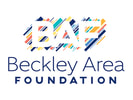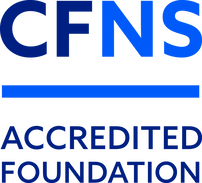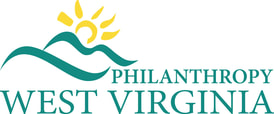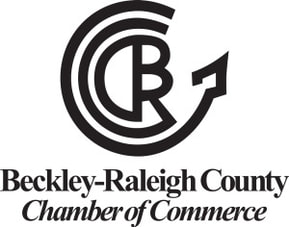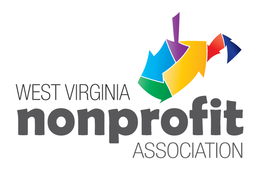The Kaplan Family Fund for Learning Disabilities in Southern West Virginia
|
Dr. Seth and Mrs. LaRinda Kaplan have established the “Kaplan Family Fund for Learning Disabilities in Southern West Virginia” to support educators pursuing training in reading programs with a focus on dyslexia methodologies. The fund will pay for training provided by Lindamood-Bell and Marshall University’s H.E.L.P Center reading programs that focus on children with dyslexia. Initially, the grant will support educators with a minimum of two year’s teaching experience in McDowell, Wyoming, Mingo and Raleigh counties of West Virginia, but the Kaplans hope the fund will one day grow to the point it can serve other areas of the Appalachian Mountains as well.
|
|
Applications Accepted Through June 30th!
BAF and Marshall University's H.E.L.P. Program is proud to offer a transformative two-day training event on Thursday, July 25th, and Friday, July 26th, 2024. This intensive session will equip teachers with practical and research-backed strategies centered around two indispensable pillars of the science of reading: Multisensory Structured Phonics and Phonemic Awareness. The best part? This invaluable training comes at no cost to participants and is tailored to benefit both regular and special educators alike. |
Frequently Asked Questions
1. What is multisensory structured phonics? How is that different from phonemic awareness?
- Multisensory Structured Phonics integrates multiple senses in teaching phonics, while phonemic awareness focuses on the ability to identify and manipulate individual sounds in spoken language.
2. What program is this based on?
- The content is developed from the National Reading Panel Report and the Science of Reading, incorporating principles and techniques of the Orton-Gillingham approach.
3. How does this training fit in with the Science of Reading?
- It concentrates on two essential components of the Science of Reading: phonemic awareness and phonics, crucial for early literacy development. Other components will also be touched upon.
4. What about meals?
- Participants are responsible for their own meals, with various dining options available nearby. Light snacks, coffee, and water will be provided during breaks.
5. Where would I stay?
- We recommend the Delta Hotel in Huntington, WV, located in beautiful Pullman Square, with shopping and restaurants within a few footsteps. Limited hotel stipends are available upon application. Other hotels can be recommended upon request.
6. What about parking?
- Free parking is available at the Delta Hotel and most other hotels in the downtown Huntington area. Myers Hall (The HELP Program) on Marshall's campus will also have free parking available.
7. How do I get there?
- The Delta Hotel is located at 800 Third Avenue, Huntington, West Virginia, USA, 25701. To get there take the Hal Greer exit off I64 towards town. Turn left onto 3rd Ave (US-60 W). Go for 0.3 mi. Continue down 3rd Ave. Go for 0.5 mi. Turn right onto 8th St. Go for 108 ft. Turn right. Go for 102 ft. Myers Hall is located at 520 18th Street on Marshall University’s campus. Take the Hal Greer exit off I64. Follow Hal Greer Boulevard to 5th Avenue. Turn right on 5th Avenue. Drive to 18th Street and turn right. Myers Hall will be the second building on the left. Look for the flagpole and City National Bank.
8. Is this Orton-Gillingham training?
- While the instructor is Orton-Gillingham trained, the workshop itself is not solely focused on Orton-Gillingham.
9. Who will be teaching the workshop?
- Laura Rowden, the Coordinator of Community HELP at Marshall University, will lead the workshop. Laura boasts thirty years of experience utilizing multisensory phonics techniques. She is a licensed WV teacher with an M.A. in Learning Disabilities from Marshall University. She is also a frequent conference speaker.
10. When is the workshop scheduled?
- Thursday, July 25th, and Friday, July 26th, 2024. The workshop will run from 9:00 AM to 3:00 PM with a one-hour lunch break on both days.
11. Am I required to attend both days?
- Yes.
12. Is there a registration deadline?
- Please register by Sunday, June 30th, 2024. Early registration is encouraged due to limited spots.
13. What is the cost?
- The training itself is free, thanks to a generous grant from the Kaplan Family Fund and Beckley Area Foundation. To register for Professional Development Credits (3), the fee is $114. All other costs are associated with hotel, travel, and/or food expenses. Limited hotel stipends are available. Please email Dr. Hillary Adams, [email protected], to inquire!
14. Who is paying for this?
- The Kaplan Family Fund for Learning Disabilities in Southern West Virginia sponsors the training, particularly supporting educators in specified West Virginia counties. Dr. Seth and Mrs. LaRinda Kaplan have established the “Kaplan Family Fund for Learning Disabilities in Southern West Virginia” to support educators pursuing training in reading programs with a focus on dyslexia methodologies. Initially, the grant will support educators with a minimum of two years’ teaching experience in McDowell, Wyoming, Mingo and Raleigh counties of West Virginia.
15. Are there Professional Development Credits available?
- Yes! Teachers can register to earn 3 Professional Development Credits. Once registered for the training, applicants will be given information on how to register to earn credits.
16. Are there additional requirements outside the 2-day training to earn Professional Development Credits?
- Yes. Teachers will be expected to attend the entire 2-day training and then complete a post-training project focused on implementing strategies learned and submitting a paper based on the strategies and their experience.
17. Do I have to be a teacher to participate? What if I am in administration?
- The training is solely focused on current certified teachers. We are not opening the training to any administrators at this time.
1. What is multisensory structured phonics? How is that different from phonemic awareness?
- Multisensory Structured Phonics integrates multiple senses in teaching phonics, while phonemic awareness focuses on the ability to identify and manipulate individual sounds in spoken language.
2. What program is this based on?
- The content is developed from the National Reading Panel Report and the Science of Reading, incorporating principles and techniques of the Orton-Gillingham approach.
3. How does this training fit in with the Science of Reading?
- It concentrates on two essential components of the Science of Reading: phonemic awareness and phonics, crucial for early literacy development. Other components will also be touched upon.
4. What about meals?
- Participants are responsible for their own meals, with various dining options available nearby. Light snacks, coffee, and water will be provided during breaks.
5. Where would I stay?
- We recommend the Delta Hotel in Huntington, WV, located in beautiful Pullman Square, with shopping and restaurants within a few footsteps. Limited hotel stipends are available upon application. Other hotels can be recommended upon request.
6. What about parking?
- Free parking is available at the Delta Hotel and most other hotels in the downtown Huntington area. Myers Hall (The HELP Program) on Marshall's campus will also have free parking available.
7. How do I get there?
- The Delta Hotel is located at 800 Third Avenue, Huntington, West Virginia, USA, 25701. To get there take the Hal Greer exit off I64 towards town. Turn left onto 3rd Ave (US-60 W). Go for 0.3 mi. Continue down 3rd Ave. Go for 0.5 mi. Turn right onto 8th St. Go for 108 ft. Turn right. Go for 102 ft. Myers Hall is located at 520 18th Street on Marshall University’s campus. Take the Hal Greer exit off I64. Follow Hal Greer Boulevard to 5th Avenue. Turn right on 5th Avenue. Drive to 18th Street and turn right. Myers Hall will be the second building on the left. Look for the flagpole and City National Bank.
8. Is this Orton-Gillingham training?
- While the instructor is Orton-Gillingham trained, the workshop itself is not solely focused on Orton-Gillingham.
9. Who will be teaching the workshop?
- Laura Rowden, the Coordinator of Community HELP at Marshall University, will lead the workshop. Laura boasts thirty years of experience utilizing multisensory phonics techniques. She is a licensed WV teacher with an M.A. in Learning Disabilities from Marshall University. She is also a frequent conference speaker.
10. When is the workshop scheduled?
- Thursday, July 25th, and Friday, July 26th, 2024. The workshop will run from 9:00 AM to 3:00 PM with a one-hour lunch break on both days.
11. Am I required to attend both days?
- Yes.
12. Is there a registration deadline?
- Please register by Sunday, June 30th, 2024. Early registration is encouraged due to limited spots.
13. What is the cost?
- The training itself is free, thanks to a generous grant from the Kaplan Family Fund and Beckley Area Foundation. To register for Professional Development Credits (3), the fee is $114. All other costs are associated with hotel, travel, and/or food expenses. Limited hotel stipends are available. Please email Dr. Hillary Adams, [email protected], to inquire!
14. Who is paying for this?
- The Kaplan Family Fund for Learning Disabilities in Southern West Virginia sponsors the training, particularly supporting educators in specified West Virginia counties. Dr. Seth and Mrs. LaRinda Kaplan have established the “Kaplan Family Fund for Learning Disabilities in Southern West Virginia” to support educators pursuing training in reading programs with a focus on dyslexia methodologies. Initially, the grant will support educators with a minimum of two years’ teaching experience in McDowell, Wyoming, Mingo and Raleigh counties of West Virginia.
15. Are there Professional Development Credits available?
- Yes! Teachers can register to earn 3 Professional Development Credits. Once registered for the training, applicants will be given information on how to register to earn credits.
16. Are there additional requirements outside the 2-day training to earn Professional Development Credits?
- Yes. Teachers will be expected to attend the entire 2-day training and then complete a post-training project focused on implementing strategies learned and submitting a paper based on the strategies and their experience.
17. Do I have to be a teacher to participate? What if I am in administration?
- The training is solely focused on current certified teachers. We are not opening the training to any administrators at this time.
